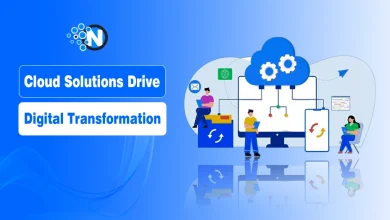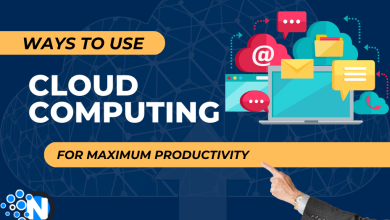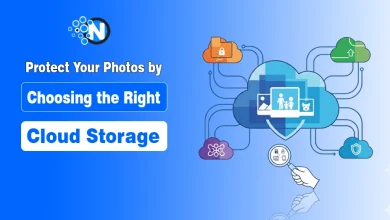Why Moving To The Cloud Is The Best Decision For Your Business In 2025

In the past few years, cloud computing has changed a lot. It used to be just a way to store data, but now it’s a full tool that helps businesses run their daily operations. Businesses will be able to use advanced technologies like machine learning and artificial intelligence to their full potential in 2025, thanks to cloud computing.
Unfortunately, a lot of companies are still on the fence about moving to the cloud because they think their old systems can do the job and that they wouldn’t need to spend money on the cloud. But if you stick with old infrastructure, your business will be at a competitive disadvantage and will also have practical inefficiencies and security holes.
Cloud-based managed services are not a nice-to-have; they’re a must-have. They give businesses access to new features that encourage growth and creativity. So, now is the time for your company to accept this change if it hasn’t already.
In this blog post, I have listed the 5 compelling reasons why moving to the cloud is the best decision for your business in 2025.
Moving to the Cloud – What is Cloud Migration?
Cloud migration for businesses is the process of moving digital assets, applications, and services from on-premises infrastructure to a cloud computing platform. It is an integral part of digital transformation to stay ahead of the curve in this digital world.
This shift enables companies to enhance scalability, security, and cost efficiency while taking advantage of cloud-based tools. Moving to the cloud not only helps businesses enhance operational efficiency but also streamlines processes while keeping data safe and protected.

Why Moving To The Cloud Is The Best Decision – Top 5 Reasons
1. Unmatched Scaling Capabilities
Many businesses find it easier to change their resources as their needs change than to buy and set up new computers. The cloud makes this possible. The cloud is a good option for businesses that need to handle high demand, like when they release a new product or during the holiday season. It lets you scale back down easily when things slow down.
The retail industry is a good example of this, as during Black Friday, e-commerce websites see traffic increase up to 10 times compared to the normal volume. When relying on traditional systems, businesses need to invest heavily in servers only during those times of increased demand; however, with the cloud, the problem can be effectively tackled, as it offers scalable solutions. This helps prevent a crash on your website during peak sales and saves you money, as the extra resources are turned off after the rush, ensuring you won’t have to pay for unused capacity.
2. Enhanced Security
Security is a major concern for businesses as cybercrime is becoming increasingly advanced. Thankfully, the cloud excels when it comes to security, keeping your data protected without extra effort. The cloud providers utilise tools such as automatic updates, encryption, and real-time monitoring to ensure everything is in order.
Encryption ensures that only authorised people will be able to access your business data, thus preventing bad actors from misusing it, while automatic updates keep security features current, safeguarding your company from evolving threats. Finally, real-time monitoring is a solution that works in the background, spotting potential issues promptly and preventing them from causing bigger problems.
Suppose you run a small online store. In this case, the cloud safeguards customers’ payment details without the need to hire an internal security team, which would be costly. Furthermore, if you handle sensitive employee information, the cloud will help ensure compliance with regulations such as GDPR.
Given the enhanced security that your business can benefit from, migrating to the cloud is a no-brainer, but it’s paramount to choose a reliable cloud computing platform to ensure a smooth transition, such as Azure, which is flexible and designed to support the strategy of any business. You want, however, to do your research regarding Azure pricing, as it can be complex, and include different models across various services, and you want to take the time to find the option that caters to the unique needs of your company.
3. Substantial Cost Savings
Your business gains financial advantages from the cloud while simultaneously freeing resources you can use on critical areas that will enhance your long-term results. Traditional systems force companies to purchase expensive infrastructure and servers, which they use to plan for potential future situations that often remain unused.
Companies can now utilize the cloud’s pay-per-use structure to eliminate wasteful infrastructure costs. Businesses only pay for the cloud resources their operations require and this flexibility lets them reduce expenditures on unused capacities.
Businesses can spend the saved money on true value drivers that empower innovation in their operations. Instead of maintaining outdated equipment, a company can choose to use its funds for research and development initiatives. By investing in improved tools and AI-driven personalization, along with qualified staff members, businesses could enhance their customer journey.
4. Future-Proofing And Competitive Edge
Your business can secure its future with the cloud by getting access to emerging innovations from a strong fundamental base. Analytics solutions provide businesses with tools to analyze data demands while extracting immediate insights from the information. Through the cloud, your organization maintains preparedness to adapt to changes and scale its operations.
However, keep in mind that the process can be quite complex. If you want to keep things smooth, it’s wise to reach out to a leading specialist that can help you with everything, such as Intercept, which offers innovative and highly accessible cloud solutions. Analytics tools help your organization extract real-time insights while managing increasing data requirements.
5. Disaster Recovery
There are many things that can shake a business, from power outages and cyberattacks to a natural disaster, leaving you susceptible to losing essential data. The good news is that the cloud tackles this issue by providing fast and simple disaster recovery, therefore helping your company to continue running.
By storing data across several locations, the cloud ensures that another system can take over immediately if one of them fails unexpectedly. While with traditional systems, complex setups, and expensive backup servers are needed to handle these issues, the cloud does everything automatically.
Downtime can be incredibly expensive for businesses – the average cost is estimated at $9,000 per minute, but even a short disruption can have significant consequences, such as unhappy customers, lost revenue, and a tarnished reputation. With the built-in disaster recovery solutions from the cloud, you can minimize this risk considerably and restore a clean backup in just a matter of minutes, helping you save both money and time.
The Bottom Line
After reading the article, hopefully, you realise that the cloud is not only a strategic choice but a must-have if you want your business to thrive in 2025 and beyond. All the benefits mentioned above are compelling enough for any business to consider this move. So, are you ready to take the step and optimise your business with cloud migration in 2025? Let’s know in comments!




